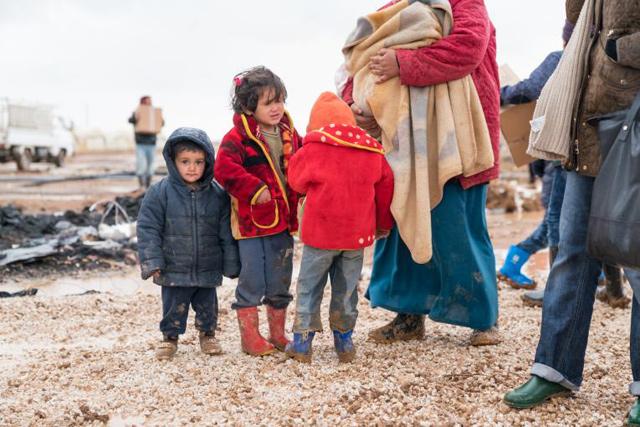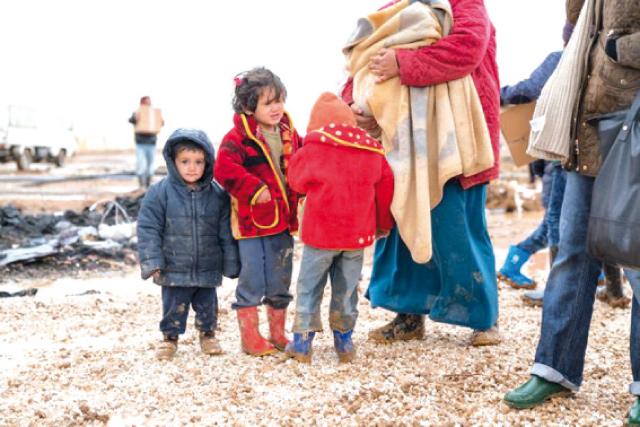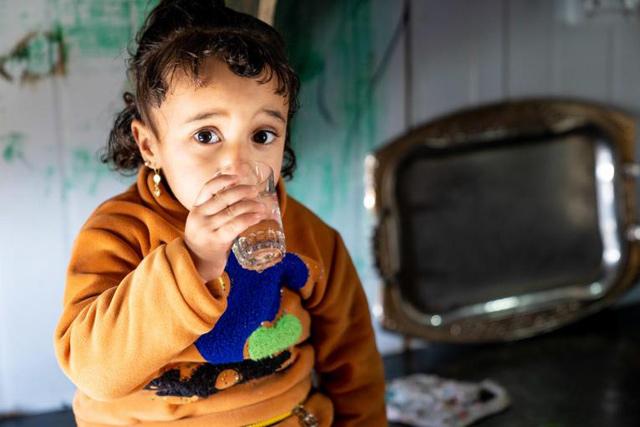You are here
Winter support ‘a lifeline’ for refugee families — UNICEF
By Nadeen Jumai’an - Jan 10,2021 - Last updated at Jan 10,2021

Socioeconomic impacts of prolonged movement restrictions and the closure of all community and learning facilities have been particularly severe for camp refugees, according to UNICEF Jordan (Photo courtesy of UNICEF Jordan website)
AMMAN — Socio-economic impacts of prolonged movement restrictions and the closure of all community and learning facilities have been particularly severe for camp refugees, according to UNICEF Jordan.
A UNICEF survey found that twice as many households are living on an income of less than JD100 ($140), a considerably lower figure than before the pandemic.
Refugees in camps have regularly been subjected to crowded living conditions and limited access to desirable livelihoods.
The population profile places camp refugees in more vulnerable situations, given that 30 per cent of households are female-headed and almost 60 per cent of the population under the age of 18, according to UNICEF.
This winter, over 75,000 refugees and other vulnerable children are left in “disarray”, the UN agency said.
Tanya Chapuisat, UNICEF Jordan representative, told The Jordan Times that agency has continued to distribute essential supplies for children — including soap and learning materials — throughout the pandemic and has the systems in place to ensure safe distributions to communities in need.
“UNICEF’s appeal was 73 per cent funded in 2020,” Chapuisat said.
However, the agency now requires $165.5 million to ensure safe living conditions for refugees in the coming winters.
The UN agency also said that “winter support is a lifeline for these families”.
UNICEF launched a $6 million Winter Children’s Appeal to help prevent a devastating winter for vulnerable families in Jordan in response to “negative coping mechanisms”, such as child marriage and escalating debt.
The organisation’s “Winterisation Appeal” for vulnerable families calls for the “doubling of their budget to cover heating, winter clothes, food and medicine”, which will help meet the basic and dire needs of families in vulnerable conditions.
UNICEF said that the appeal targets over 75,000 vulnerable children, including Syrian refugees, with warm winter clothing and cash assistance to support families through the cold winter months.
UNICEF said it has also stepped up its cash transfer programme Hajati to support 30,000 children during the COVID-19 crisis, while outreach efforts continue to help children to learn and stay safe during the pandemic.
The agency supports the government of Jordan’s National Social Protection Strategy to help provide safe living conditions to the vulnerable children and their families across the Kingdom, according to UNICEF.
Related Articles
AMMAN — With cold weather conditions due imminently, UNICEF has launched a $6 million Winter Children’s Appeal to help prevent a devastating
AMMAN — Critical support from Qatar Charity to UNICEF has helped to provide safe water and sanitation to over 75,000 Syrian refugees in Zaat
AMMAN — UNICEF has procured 45,000 locally manufactured warm winter clothing kits for vulnerable children, UNICEF Jordan Representative Tany

















